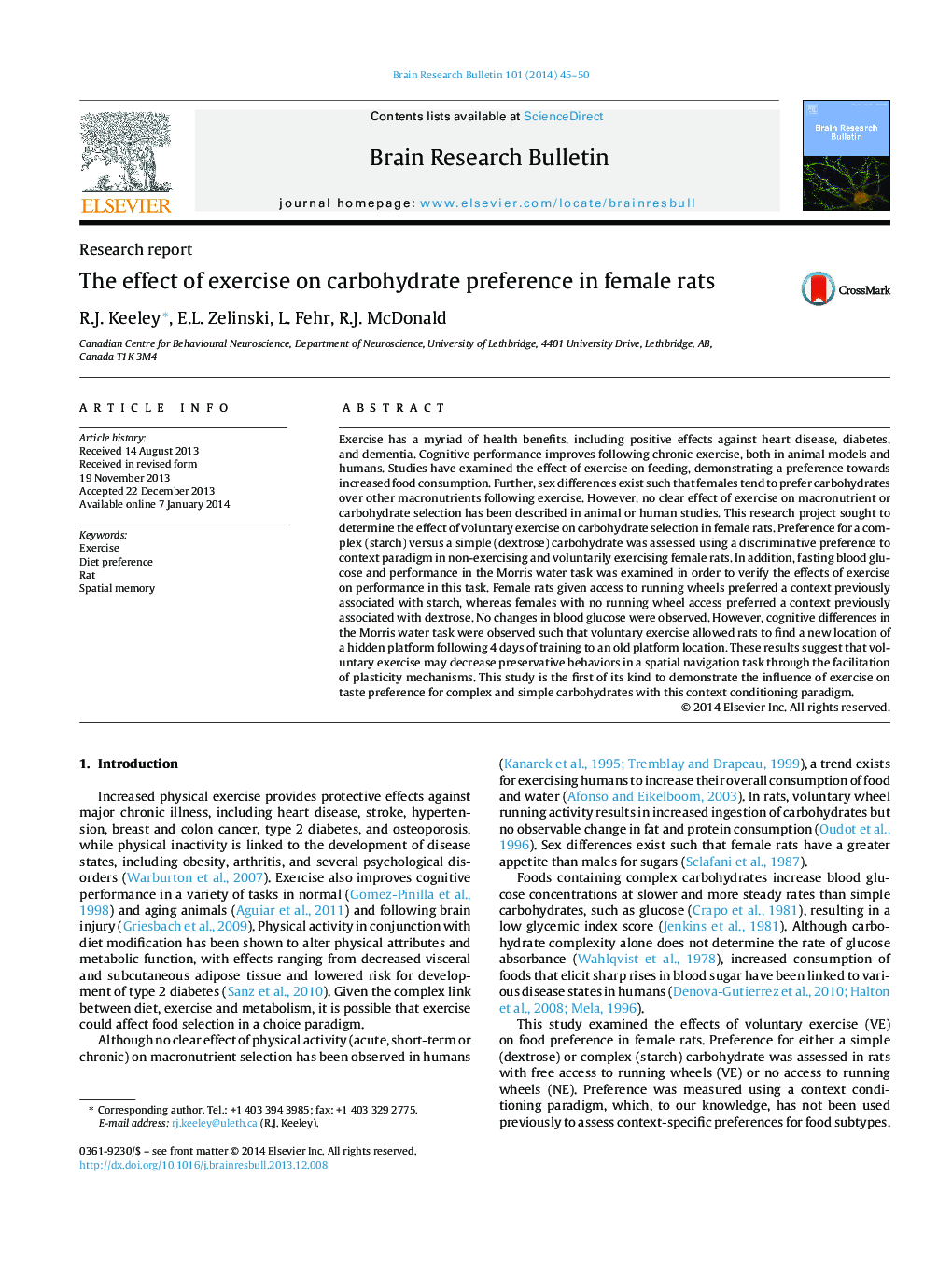| Article ID | Journal | Published Year | Pages | File Type |
|---|---|---|---|---|
| 6261794 | Brain Research Bulletin | 2014 | 6 Pages |
â¢Exercising female rats preferred a context paired with starch.â¢Non-exercising female rats preferred a context paired with dextrose.â¢These results were achieved in the absence of a change in fasting blood glucose.â¢Exercising female rats had improved search strategies in a spatial memory task.â¢Exercise changed the hedonic properties of food types and improved spatial performance.
Exercise has a myriad of health benefits, including positive effects against heart disease, diabetes, and dementia. Cognitive performance improves following chronic exercise, both in animal models and humans. Studies have examined the effect of exercise on feeding, demonstrating a preference towards increased food consumption. Further, sex differences exist such that females tend to prefer carbohydrates over other macronutrients following exercise. However, no clear effect of exercise on macronutrient or carbohydrate selection has been described in animal or human studies. This research project sought to determine the effect of voluntary exercise on carbohydrate selection in female rats. Preference for a complex (starch) versus a simple (dextrose) carbohydrate was assessed using a discriminative preference to context paradigm in non-exercising and voluntarily exercising female rats. In addition, fasting blood glucose and performance in the Morris water task was examined in order to verify the effects of exercise on performance in this task. Female rats given access to running wheels preferred a context previously associated with starch, whereas females with no running wheel access preferred a context previously associated with dextrose. No changes in blood glucose were observed. However, cognitive differences in the Morris water task were observed such that voluntary exercise allowed rats to find a new location of a hidden platform following 4 days of training to an old platform location. These results suggest that voluntary exercise may decrease preservative behaviors in a spatial navigation task through the facilitation of plasticity mechanisms. This study is the first of its kind to demonstrate the influence of exercise on taste preference for complex and simple carbohydrates with this context conditioning paradigm.
